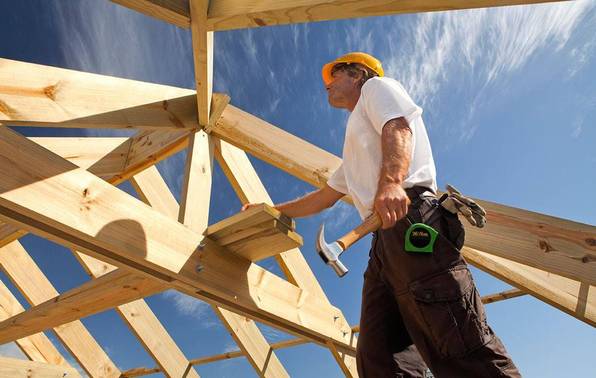
Building stages
A list of the steps you need to take and a checklist of your responsibilities to make sure your building project goes as smoothly as possible.
A list of the steps you need to take and a checklist of your responsibilities to make sure your building project goes as smoothly as possible.
Stages in a building project
Once the plans are drawn, the materials have been chosen, and your finance is arranged, the next steps in the building process are likely to be:
- Finding a builder (and subcontractors if you are managing the building project yourself).
- Getting tenders and quotes.
- Revising the budget, if necessary.
- Making your selection of builder and subcontractors.
- Signing the contracts.
- Making sure the appropriate insurance has been organised.
- Applying for building and resource consents if not already underway - the applications may already have been lodged by you or your architect or designer.
- Construction starts:
- Monitoring progress
- Making progress payments
- Approving variations to structure or materials
- Building inspections by the Building Consent Authority (BCA)inspectors.
-
Final stages:
- completion and final inspections for the code compliance certificate
- retentions and remedial work
- final payment.
- Dealing with problems when things go wrong.
- Landscaping.
Often these steps happen together, or in a different order, depending on your circumstances.
Your responsibilities
It is recommended that you have active involvement during construction. Before work begins:
- Make sure building consent has been issued.
- Make sure that you understand all the documentation – have the architect or builder explain the plans and specifications to you and make sure you are happy with the design – changes during construction are likely to be costly.
- If the work is restricted building work, make sure the appropriate licensed building practitioners will be designing and carrying out or supervising out the work.
- Talk to a lawyer about the contract.
- Ensure that the site is cleared and ready for the builder to start work.
- Make sure your builder has unhindered access to the site.
While work is in progress:
- Develop a good working relationship with your builder. If you have any concerns about the work, discuss them right away.
- Keep changes to a minimum and instruct your builder in writing about all variations to the specified work and ensure you get a written costing. Be aware any changes you make may mean you have to amend your building consent.
- Choose materials and finishes carefully and approve them before use.
- If you are responsible for choosing the appliances and any other materials or fittings and fixtures, make sure they are already bought when the builder reaches that stage.
- Keep to the payments schedule and pay promptly.
When the work is complete:
- Report any urgent defects to your builder promptly and in writing.
- List any non-urgent defects for your builder to correct at an agreed time.
- Settle the final account promptly.
- It is your responsibility to apply for a code compliance certificate when the building work is complete.
Tip: The building phase will go more smoothly if you can establish good communication between everyone involved in the project.
Get the builder and designer together right at the start, even before you buy the section if its not too late to do so. Make sure they keep talking to each other throughout to avoid a breakdown in the processes, or misunderstandings about what should be happening.
You must be able to have confidence in the person who is managing the project to keep the communication channels between you, the designer, the builder and the subcontractors open and flowing to achieve the best possible outcome for your new house or renovations.

Building articles
Whether you're planning to build your own home or renovate an existing one, we've got you covered with a wide range of articles covering the whole process.

Renovating articles
Renovating and altering houses is a favourite pastime for many New Zealanders. Our articles take a look at what's involved when you undertake a renovation project.

Home maintenance
Regular maintenance is needed to ensure your house holds its value and remains safe and comfortable to live in.
Member comments
Get access to comment